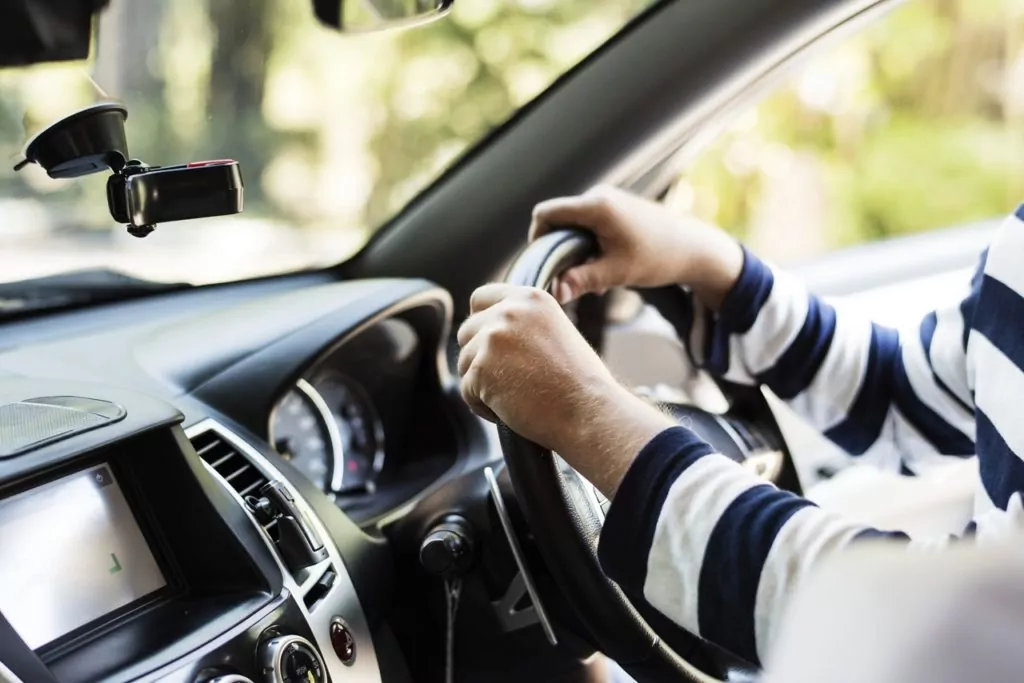What Happens If You Get in an Accident with a Suspended License?
 Getting into a car accident is stressful. When you’re also driving with a suspended license, that stress multiplies. You may be worried about legal penalties, insurance coverage, and whether you can still recover compensation for your injuries. In Virginia, you are not alone. According to the DMV, over 647,000 drivers had their licenses suspended in a single recent year, often for issues like unpaid fines or court fees. This means that accidents involving drivers with suspended licenses are unfortunately common. This page answers the critical questions you have right now about what happens if you get in an accident with a suspended license.
Getting into a car accident is stressful. When you’re also driving with a suspended license, that stress multiplies. You may be worried about legal penalties, insurance coverage, and whether you can still recover compensation for your injuries. In Virginia, you are not alone. According to the DMV, over 647,000 drivers had their licenses suspended in a single recent year, often for issues like unpaid fines or court fees. This means that accidents involving drivers with suspended licenses are unfortunately common. This page answers the critical questions you have right now about what happens if you get in an accident with a suspended license.
Can I Still Get Compensation in a Not-at-Fault Accident with a Suspended License?
Yes, you can still be eligible for compensation even if your license was suspended when the accident occurred. In Virginia, the two issues are legally separate:- Fault for the Accident: This is determined by which driver's negligence caused the collision.
- Your License Status: This is a traffic violation, but it does not automatically make you responsible for the crash.
How Virginia's Contributory Negligence Law Affects Your Claim
The biggest challenge in these cases is Virginia’s strict contributory negligence rule. This law states that if you are found to be even 1% at fault for the accident, you can be barred from recovering any compensation. After an accident with a suspended license, the other driver's insurance company will aggressively look for any way to assign a small percentage of fault to you. They might argue that because your license was suspended (perhaps for a prior reckless driving charge), you are an unsafe driver and must have contributed to the crash. An experienced attorney is crucial to fight these tactics and prove the other driver was 100% at fault.Will Insurance Cover an Accident If Your License Is Suspended?
This is a major concern for many drivers. The answer depends on the specific language in your insurance policy.- Liability Coverage: In many cases, your liability insurance may still cover damages you cause to others, even with a suspended license. Insurers often want to avoid being sued for bad faith denial of a claim.
- Collision/Medical Coverage: Your own policy might have an "exclusion clause" that denies coverage for your own vehicle damage or injuries if you were driving illegally (e.g., with a suspended license).
What If I Was Hit by a Driver with a Suspended License?
If you were the victim, what happens if you get into an accident with a suspended license-holder is a different set of challenges. Often, a driver with a suspended license is also uninsured. This is because a valid license is usually required to maintain an auto insurance policy. If you are hit by a driver who has no insurance coverage, the steps are:- File a Police Report: The officer will cite the other driver for driving with a suspended license.
- Check Your Own Insurance: Your Uninsured/Underinsured Motorist (UM/UIM) coverage is designed for this exact situation. This coverage allows you to file a claim with your own insurance company to cover your medical bills, lost income, and other damages.
- Explore Other Options: While you can sue the at-fault driver personally, many individuals who drive without a license or insurance have few assets, making recovery difficult. Your UM/UIM policy is often your best and quickest path to compensation.
Penalties for Driving with a Suspended License in Virginia
Regardless of who was at fault for the crash, driving with a suspended license is a Class 1 misdemeanor in Virginia. If you are ticketed at the scene of the car accident, a suspended license can lead to:- Up to 12 months in jail.
- A fine of up to $2,500.
- A further suspension of your license for the same period it was originally suspended.
How Tronfeld West & Durrett Can Help
Don’t let a suspended license cost you the compensation you deserve. The moments after a crash are confusing, and insurance companies will use your situation to their advantage. They may try to use your suspended license to intimidate you into accepting a low settlement or dropping your claim altogether. At Tronfeld West & Durrett, our experienced Richmond car accident lawyers understand how to navigate these complex cases. We know that your license status does not give a negligent driver a free pass to injure you. We will:- Thoroughly investigate the accident to prove the other driver was 100% at fault.
- Handle all communication with insurance adjusters so they can’t use your suspended license against you.
- Fight to protect your right to full and fair compensation for your injuries and losses.
- Provide guidance on the legal challenges related to your license suspension.
Contact us today for a free, confidential consultation. Let our trusted Virginia personal injury attorneys protect your rights and fight for your future.

